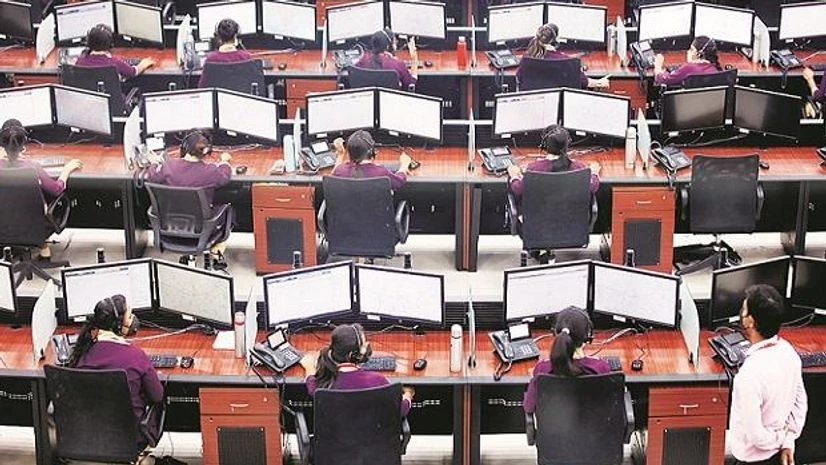Indian IT players are well-positioned to capture at least 20 per cent share of the trillion-dollar incremental spend on technology over the next 4-5 years, potentially doubling the size of the industry, HCL Technologies CEO C Vijayakumar said.
Infosys Chief Executive Officer (CEO) Salil Parekh and Wipro CEO Thierry Delaporte expressed similar views saying the pandemic has accelerated digital adoption, and there is a need to continue upskilling people on latest technologies for driving the industry's growth.
"If you look at all the projections, there is at least a trillion dollars of incremental spend in the next 4-5 years. I think, as an industry, we should get at least a 20 per cent share, which means that USD 200 billion growth over the next five years could potentially double the industry," Vijayakumar said at the 29th Nasscom Technology and Leadership Forum.
He added that for scalability of the industry, it's very important to look at platform-based services as it will provide standardisation, the ability to scale and onboard multiple customers on a similar platform.
"I think that's definitely one trajectory in which we could look at growth...we should recognise that software products is the largest profit pool in the tech sector...I think that's an untapped opportunity for us as Indian heritage companies and I think there's a lot of potential there," Vijayakumar said.
Also Read
He pointed out that while Indian IT services companies have a fair share in about 5-6 countries, there are many countries where the industry is underrepresented.
According to industry body Nasscom, Indian IT industry revenues are set to grow by 2.3 per cent to USD 194 billion in FY2020-21 and the exports will go up by 1.9 per cent to USD 150 billion.
The industry remained a net hirer in the fiscal year, which saw a major hit across the world because of the COVID-19 pandemic, with 1.38 lakh new jobs added to take overall employment to 44.7 lakh, it had said.
Parekh noted that localisation is a critical element of globalisation as clients, especially large global enterprises, are looking for delivery capabilities across multiple geographies.
"...that's the approach we think we should follow in making sure that we support them in those geographies and ensuring the consistency of that...We are also building up localisation to make sure that our business model resilience comes into all of our discussions and becomes part of what our future looks like," he added.
The executives agreed that the industry players are engaging more closely with clients and working together towards business outcomes.
Parekh said the rich talent pool in India is a big advantage for the industry. "The skills of the people, the enthusiasm and ability to deliver for clients through all this turmoil is incredible... (this is a big advantage) for the IT industry to continue to do well, to continue to gain traction and be at the centre with what all our large clients are looking for," he added.
Wipro's Delaporte noted that one of the challenges to growth could be around how much talent is available that can cater to the burgeoning demand for digital services, and hence there is a need to invest in reskilling people to ensure employees are adapted to the evolution of technology.
"India has the most exceptional pool of talent in the entire world...this is the mother country of technology in the world...we need to bring creativity to drive innovation, for what can we do with cloud in a cloud environment when you combine 5G and Internet of Things, what can you do with sensors...," he said.
Delaporte added that a push on diversity is also essential as that would make the workforce stronger, more global and be able to think out of the box more and be more creative.
(Only the headline and picture of this report may have been reworked by the Business Standard staff; the rest of the content is auto-generated from a syndicated feed.)

)
